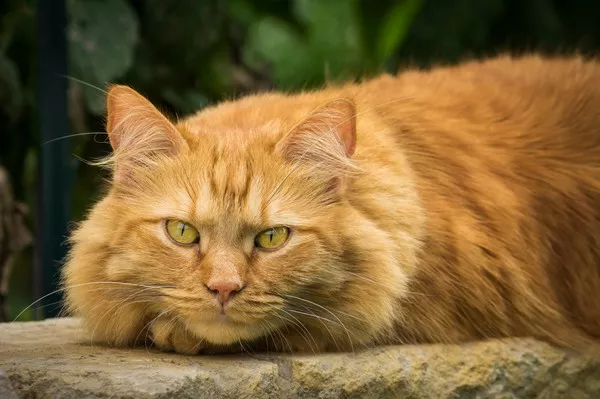As devoted pet owners, we strive to provide the best care for our feline companions, ensuring their health and well-being at all times. However, emergencies can arise unexpectedly, prompting the need for immediate veterinary attention. This raises a crucial question for cat owners: is the cat hospital open 24 hours a day? Understanding the availability of veterinary services, especially during off-hours, is essential for effective pet care. This essay delves into the importance of 24-hour cat hospitals, the types of emergencies that may necessitate round-the-clock care, how to find a 24-hour facility, and the implications of having access to continuous veterinary support.
The Importance of 24-Hour Cat Hospitals
Emergency Situations
Cats are known for their curious and sometimes mischievous nature, which can lead to accidents and emergencies. Common situations that may require immediate veterinary attention include:
Trauma or Injury: Cats can sustain injuries from falls, fights with other animals, or accidents involving vehicles.
Poisoning: Ingesting toxic substances, such as certain plants, human foods, or chemicals, can lead to life-threatening situations.
Severe Illness: Conditions such as difficulty breathing, severe vomiting, or sudden lethargy can indicate serious health issues that require prompt intervention.
In these scenarios, having access to a 24-hour cat hospital can mean the difference between life and death.
Peace of Mind for Pet Owners
Knowing that veterinary care is available around the clock provides reassurance to pet owners. This peace of mind is particularly important for those with cats that have chronic health issues or are prone to emergencies.
Reduced Anxiety: Pet owners can feel more secure knowing that help is just a phone call away, no matter the time of day or night.
Better Preparedness: With access to 24-hour care, pet owners can act quickly in emergencies, improving the chances of a favorable outcome for their cats.
Comprehensive Care
Many 24-hour cat hospitals offer comprehensive services beyond emergency care. These may include:
Diagnostic Services: Access to advanced diagnostic tools, such as X-rays and ultrasounds, available at any hour.
Surgical Services: Emergency surgeries can be performed immediately, ensuring that critical conditions are addressed without delay.
Specialist Consultations: Some facilities may have specialists available at all hours, providing expert care for complex cases.
Types of Emergencies That Require 24-Hour Care
Understanding the types of emergencies that necessitate 24-hour veterinary care can help pet owners recognize when to seek immediate assistance.
Trauma and Injuries
Cats can experience various traumatic events that require urgent care:
Fractures: Broken bones from falls or accidents need immediate evaluation and treatment.
Wounds: Deep cuts or lacerations, especially those that may require stitches, should be addressed promptly to prevent infection.
Poisoning
Cats are susceptible to poisoning from various sources, including:
Household Toxins: Common household items like antifreeze, cleaning products, and certain plants can be highly toxic to cats.
Human Foods: Foods such as chocolate, onions, and garlic can cause severe reactions if ingested.
Recognizing the signs of poisoning and seeking immediate care can save a cat’s life.
Respiratory Distress
Difficulty breathing is a serious condition that requires prompt evaluation. Possible causes include:
Asthma: Feline asthma can cause sudden respiratory distress and may require immediate treatment.
Heart Disease: Conditions such as congestive heart failure can lead to acute breathing difficulties.
Severe Vomiting or Diarrhea
Persistent vomiting or diarrhea can lead to dehydration and electrolyte imbalances. These symptoms can indicate serious underlying conditions, such as:
Infections: Viral or bacterial infections may require immediate treatment.
Obstruction: Ingesting foreign objects can cause blockages in the digestive tract, necessitating urgent care.
Neurological Issues
Neurological emergencies can manifest as seizures, disorientation, or sudden changes in behavior. Conditions that may require immediate attention include:
Seizures: A cat experiencing a seizure should be evaluated immediately to determine the cause.
Stroke: Sudden weakness or paralysis may indicate a stroke, requiring urgent care.
Finding a 24-Hour Cat Hospital
When it comes to locating a 24-hour cat hospital, pet owners should consider several approaches to ensure they have access to emergency care when needed.
Online Research
The internet is a valuable resource for finding veterinary services. Pet owners can:
- Use search engines to look for “24-hour cat hospital near me” to find local facilities.
- Check the websites of veterinary clinics, which often provide information about their hours of operation and emergency services.
Veterinary Associations
Professional veterinary associations can help pet owners locate accredited veterinary clinics:
American Animal Hospital Association (AAHA): The AAHA provides a directory of accredited veterinary hospitals, many of which offer 24-hour services.
Local Veterinary Medical Associations: These organizations often maintain lists of member clinics and their services.
Recommendations from Other Pet Owners
Word-of-mouth recommendations can be invaluable:
- Asking friends, family, or neighbors for their experiences with local veterinary clinics can lead to trustworthy options.
- Online pet owner forums and social media groups can provide insights and recommendations for 24-hour care facilities.
Emergency Veterinary Hotlines
Some regions have emergency veterinary hotlines that can assist pet owners in locating nearby 24-hour care:
Hotlines: These services provide immediate guidance and can direct pet owners to the nearest available veterinary hospital.
What to Expect at a 24-Hour Cat Hospital
When visiting a 24-hour cat hospital, pet owners should be prepared for the experience. Understanding what to expect can help alleviate anxiety and ensure a smoother process.
Triage and Assessment
Upon arrival at a 24-hour cat hospital, the first step is often triage, where veterinary staff assess the severity of the situation.
Initial Evaluation: The veterinarian will perform a quick assessment to determine the urgency of the case.
Prioritization: Cases that require immediate attention will be prioritized, so wait times may vary based on the number of patients and their conditions.
Diagnostic Testing
Depending on the situation, the veterinarian may recommend various diagnostic tests to identify the underlying issue.
Blood Work: Blood tests can provide valuable information about a cat’s health status and help diagnose conditions.
Imaging: X-rays or ultrasounds may be performed to assess injuries or internal issues.
Treatment Options
Once a diagnosis is made, the veterinarian will discuss treatment options with the pet owner. Treatments may include:
Medications: Prescribing medications to manage pain, treat infections, or address specific health issues.
Surgery: In cases of severe injury or obstruction, surgical intervention may be necessary.
Follow-Up Care
After initial treatment, the veterinary staff will provide instructions for follow-up care. This may include:
Medications: Details on how and when to administer prescribed medications.
Monitoring: Guidance on what symptoms to watch for during recovery and when to seek further assistance.
The Benefits of 24-Hour Care
Having access to 24-hour veterinary care offers numerous benefits for both cats and their owners.
Timely Interventions
Immediate access to veterinary care allows for timely interventions that can save lives.
Critical Care: Conditions that require urgent treatment can be addressed promptly, reducing the risk of complications.
Preventative Measures: Quick responses to emergencies can prevent more serious health issues from developing.
Enhanced Communication
24-hour cat hospitals often have staff available to answer questions and provide guidance at any time.
Immediate Support: Pet owners can receive advice on how to manage their cat’s condition before arriving at the hospital.
Continuous Care: Ongoing communication with veterinary staff ensures that pet owners are informed about their cat’s health status.
Specialized Services
Many 24-hour facilities offer specialized services that may not be available at regular clinics.
Emergency Specialists: Some hospitals have veterinarians trained specifically in emergency and critical care, providing expert treatment for complex cases.
Advanced Technology: Access to advanced diagnostic and treatment technologies can enhance the quality of care.
Challenges of 24-Hour Care
While the availability of 24-hour cat hospitals is beneficial, there are challenges associated with this level of care.
Cost of Services
Emergency veterinary care can be significantly more expensive than regular visits:
Higher Fees: 24-hour facilities often charge higher fees for emergency services, which can be a concern for pet owners.
Insurance Limitations: Not all pet insurance plans cover emergency care, leading to potential out-of-pocket expenses.
Availability of Resources
Not all areas have 24-hour cat hospitals, which can pose challenges for pet owners:
Limited Access: In rural or less populated areas, finding a nearby 24-hour facility may be difficult.
Transportation Issues: Reaching an emergency hospital may require significant travel, especially if no local options are available.
Stress for Pets
Visiting a hospital, especially in an emergency, can be stressful for cats:
Fear and Anxiety: The unfamiliar environment and the presence of other animals can cause anxiety in pets.
Need for Calming Measures: Veterinary staff may need to employ calming techniques to help reduce stress for both the cat and the owner.
Preparing for Emergencies
To ensure that pet owners are ready for emergencies, several steps can be taken to prepare in advance.
Research Local Veterinary Clinics
Pet owners should research local veterinary clinics to identify which ones offer 24-hour services.
Create a List: Maintain a list of nearby 24-hour cat hospitals, including their addresses and phone numbers.
Visit the Facility: If possible, visit the clinic beforehand to familiarize yourself with the environment and staff.
Keep Important Information Handy
Having important information readily available can streamline the process during an emergency.
Medical Records: Keep a copy of your cat’s medical history, including vaccination records and any chronic conditions.
Emergency Contacts: Have the contact information for your regular veterinarian and any emergency clinics saved in your phone.
Prepare an Emergency Kit
An emergency kit can be invaluable in a crisis. Consider including:
First Aid Supplies: Bandages, antiseptic wipes, and other basic first aid items.
Medication: Any regular medications your cat takes, along with instructions for administration.
Comfort Items: A favorite toy or blanket can help soothe your cat during stressful situations.
Conclusion
In conclusion, the availability of 24-hour cat hospitals is a critical aspect of responsible pet ownership. Understanding when and why to seek emergency care can significantly impact a cat’s health and well-being. By knowing how to find a 24-hour facility, what to expect during a visit, and how to prepare for emergencies, pet owners can ensure that they are ready to act swiftly when their feline companions need help.
As we continue to navigate the challenges of pet ownership, having access to round-the-clock veterinary care provides peace of mind and reinforces the bond between cats and their owners. By prioritizing emergency preparedness and understanding the resources available, we can better protect our beloved pets and enhance their quality of life.



























